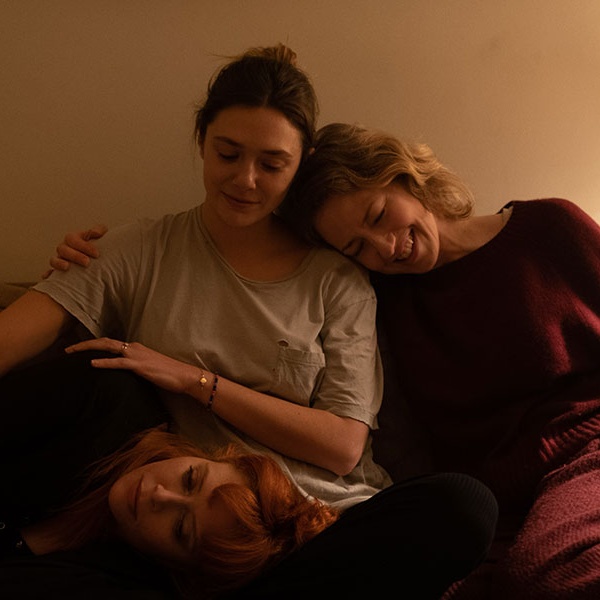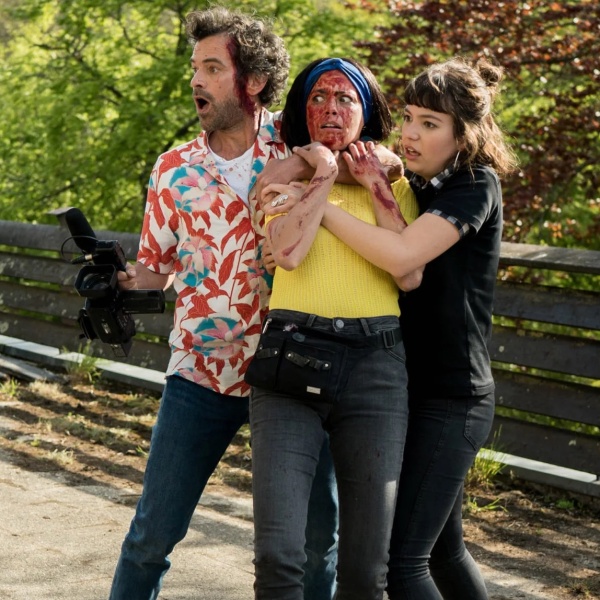Two-thirds of the way into Ena Sendijarević’s stylized sophomore feature “Sweet Dreams”, a heavily pregnant white Dutch colonialist, Josefien (Lisa Zweerman), is attempting to relieve some pent-up hormonal tension by straddling her bedpost and getting herself off. It is at this exact moment that an Indonesian housegirl, Siti (Hayati Azis), walks in bearing a jug of water and a glass.
Josefien experiences no shame and seizes her chance to manipulate Siti, for Siti has the status afforded by bearing the illegitimate son, Karel (Rio Den Haas), of the recently deceased plantation head, Jan (Hans Dagelet). Unbeknownst to Siti, Jan left it all to Karel and now the young heir and his mother both have targets on their backs for Jan’s older son, Cornelius (Florian Myjer) and his pregnant wife (hello Josefien) are possessed with a fervent desire to profit from what was never theirs. Meanwhile, the restless plantation workers are striking, and a shift in power is in the air.
This scene underlines the full scope of the film set on a Dutch East Indies sugar plantation in the 1900s, the pleasure of its bold deadpan physical humor and the fatal flaw of its on-the-nose characterizations. Josefien — like all the white people in this film — is grotesque, her body a patina of mosquito-bite-induced welts, whereas Siti is elegant and stoic, the near-silent hero of a story in which there is nowhere for any character to go because we are shown exactly who they are from the beginning.
In the absence of tension or mystery, Sendijarević and production designer Emo Weemhoff give us an aesthetic to die for: blood-rich red and burnt sienna walls dwarf elaborate lace dresses for the ladies of the manor (final position here is Jan’s enjoyably wicked widow played by Renée Soutendijk). There is a stasis to the striking compositions, all scored by twisted and repetitive music-box ditties, and a sense that we are watching not a narrative feature but a period art installation that seeks to leave no ambiguity as to who the good guys were and who the bad guys of history were, too.
Perhaps this would be less disappointing if Sendijarević’s debut had not pulsed with the strange energy of her enigmatic anti-heroine. “Take Me Somewhere Nice” followed Dutch-born teenager Alma on a visit to her hospitalized father in her homeland of Bosnia. While the visual and deadpan signature remains clear across both pictures, “Sweet Dreams” lacks a gripping sense of unpredictability, the possibility of sex or violence erupting out of nowhere. Both do, but at a point when nearly everyone has lapsed into caricatures, making it hard to truly care.
There are glimmers of a great film when Sendijarević leans into her irreverent sense of humor, and these moments are bolstered by a couple of sensational performances. Zweerman has a blast as the sexually-frustrated Josefien, whose baby bump is presented as a slightly too large yet perfect ball nestled within a body that just wants to get down to it. Highly-strung husband Cornelius is not interested, so she sets her sights on Reza (Muhammad Khan), a sugar plantation worker who keeps asking Siti to run away with him and start a new life on the land, independent of the white slave drivers.
The dynamic between Josefien and Reza is wonderful, as she mistakes his ironic displays of deference (bowing to kiss her hand) as someone genuinely under her sexual spell. Her eyes widen, like an animal who hears a food bell, in a scene where the carriage gets stuck, and Reza helps her to squelch in delicate booties through mud and up, out of the way, to sit on a rock. Their subplot stops short of the interesting places that such a mixed-up fusion of different powers could suggest. When Reza humiliates her, rather than seek petty retributions, she folds, and it is a sign of the underbaked characterizations that it is unclear whether this is a cop-out or true to a girlish, faltering nature.
Hayati Azis as Siti is a striking and opaque presence whose feelings about living in servitude have been convincingly sublimated out of necessity. Azis has a dignified, high-cheekboned look that lends her face expressiveness even when it is a mask. Her impassivity is a counterpoint to Reza, whose vocal desires and contempt sometimes find a target in the woman he is trying to seduce, as he accuses her of complicity. Yet, the film sometimes uses this character in the same mode as the milieu it’s attempting to criticize. She represents a martyred purity, not convincingly human in appetite or design.
Divided into different chapters introduced by title cards, “Sweet Dreams” wants us to see it as a heightened retelling of an episode in Dutch history, and it evokes such dark fairy tales as Mirrah Foulkes’ “Judy & Punch,” albeit without an emotional perspective to anchor its lurid visions. Although it succeeds on its own terms in bringing to light the pathetic and exploitative behavior of plantation owners during the final era of Dutch colonialism, it succumbs to the same listlessness as Josefien, lying in bed, covered in mosquito bites, waiting for a climax denied.
Grade: B-
“Sweet Dreams” premiered at the 2023 Locarno Film Festival. It is currently seeking U.S. distribution.



